
This review may contain spoilers
FINAL WORTHY, BUT DULL...
The last episode was out of sync with the others, it was a dull, slow episode with no great depth to the story. I think episodes 9 and 10 could have been combined, the makeup of the old and bedridden Anjin made me laugh, which is a shame because it was the only technical slip-up in this remarkable drama, and it didn't even impact the logical experience of the drama, but I thought it was worth mentioning.The story, development, and pace were well done and detailed, we had competent art direction that accurately studied Japanese culture at the time. As for the story, I was a little frustrated because I thought we would have the war in the last episode, but instead, we had an excessive amount of dialogue and the closure of some character arcs. I still want to reflect on whether we had an open or semi-open ending because we now know that he managed to return to England and took memories with him, but Toranaga said he would never leave Japan, yet as we observed, he did leave.
The highlight of the acting and deserving of award nominations for best actress goes to Anna Sawai, who played the unforgettable and masterful Mariko.
Was this review helpful to you?

IN SEARCH OF THE WONDERFUL WORLD...
I think the best way to praise this drama is to say that it was a competent and well-built drama. None of the episodes were irrelevant or unimportant; all episodes were complementary to each other. In other words, we had an excellent execution here.The conclusion was very conclusive and without loopholes. My last doubt was regarding the gate video and what an irony of fate, it was the controversial Soo Ho protecting his wife from the certainty that he had closed the gate. I found this explanation excellent and very consistent.
I will praise Cha EunWoo for accepting to play a character completely outside of his comfort zone and I confess that I saw positive acting points in the last episodes. I hope he continues on this path and challenges himself as an actor.
In a final analysis, the drama taught that the WONDERFUL WORLD is built daily and with small achievements. After all, life is not built only of victories and happiness.
Was this review helpful to you?

Uchikawa Reo was the biggest highlight.
It's necessary to say that Uchikawa Reo's acting level (Satoru - child) is much, but much higher and better than the performance of his adult version, which isn't exactly hammy, but falls quite short. Uchikawa managed to show us a protective Satoru, someone who seeks to fill others' voids without worrying about his own life and setbacks, someone who from the initial episode dominated the drama from start to finish. It was a pleasure to get to know this actor; it's a shame he hasn't acted for years, but he is fantastic. Also deserving of praise is the actress who played Kayo in the childhood phase, she managed to convey sensitivity in all her scenes and scenic care in her lines, it was another pleasant surprise. From the adult cast, although he had very little screen time, we have to praise the Kenya played by Shirasu Jin who did very well and in his few scenes gave an emotional and sincere tone to his character.A well-rounded and flawless drama, I liked it a lot. I watched it because of a friend's recommendation and it was a beautiful suggestion.
Was this review helpful to you?
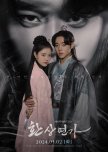
A FORGETTABLE DRAMA.
Before anything else, it is necessary to say and repeat a thousand times that Park Ji Hoon is a beast of acting. At just 24 years old, he dominates the scene and has a striking voice when he acts, unlike colleagues of the same age or similar, whose ham acting is totally evident. I only watched this drama because of him. After this brief preface, let's talk about the drama itself. It's very easy to talk about this drama because it has an excellent synopsis, but the execution was terrible, with quite lazy narrative resources, to say the least. The use of the memory loss trope by the protagonist was quite anything, and the screenwriters did not use creativity to create more innovative situations in Korean drama. Another fact that bothered me a lot and was quite exaggerated were the excessive screams and shouts of the protagonist. In episode 14, for example, it was 60 minutes of just him screaming and writhing. The villains were all well below criticism. Personally, I can't see Hwang Hee playing villains. His comic and charismatic character in "Tale of the Nine-Tailed" mentally marked me, but that's just me. What annoyed me the most was that in the initial episodes, the screenwriters treated us to a cunning, intelligent, witty, comic, and fighting Ak Hee. However, to maximise Sajo Hyun's protagonism, they turned Ak Hee into a greedy and childish idiot. Anyway, it's a drama I'll forget after typing this review.Was this review helpful to you?

This review may contain spoilers
I WILL NO LONGER FEEL PAIN! NOTHING WILL TURN RED ANYMORE.
I thank MBN for showing that a drama with a modest budget, but with a good script, well-developed and implemented clichés, well-executed plot and direction, can indeed be successful and win over the audience. This drama has demonstrated that it is possible to achieve this feat. The ending of the drama, in my opinion, presents all loose ends properly tied up, with a clear and conclusive conclusion. The explanation for the characters' second chance in life was simple: "God wanted it, and it's all right."Of course, this drama has become one of my favorites on MDL, being an incredible experience to follow these twelve episodes. I hope MBN produces more dramas with the same atmosphere.
Now that the drama is over, I can say that, in the webtoon, there are three characters who go back to the past (the protagonists and Kim Jae Won). I believe that not including this plot for Kim did not harm the development of the story. If MBN wanted to, they could have extended the plot to 16 to 20 episodes, but it's all right. It's good to end things at their peak, which helps preserve good memories.
Was this review helpful to you?
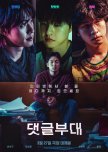
This review may contain spoilers
ESQUISITO E INCOMPLETO...
Ontem à noite decidi assistir a esse filme e o começo parece bem promissor, as bases iniciais do filme são bem apresentadas e o enredo se mostra bem interessante e inovador. Afinal, a Coreia do Sul é um dos países que mais se preocupa com a opinião pública e muitas vezes as grandes corporações e pessoas com poder decidem manipular as redes sociais e a mídia para controlar a dita opinião pública.Entretanto, a reta final do filme nitidamente estava desconexa e confusa, além de que os cortes de edição foram mal feitos e horríveis. Quando finalmente há algum esclarecimento inteligível, nos é apresentado que o garoto era um mitomaníaco narcisista que manipulou um jornalista que já estava em desgraça com o público e a imprensa, motivo? Sei lá, para os roteiristas pouco importava na verdade. Uma pena porque o elenco era muito bom.
Was this review helpful to you?
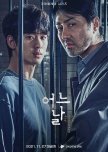
This review may contain spoilers
Is innocence synonymous with freedom?
With the imminent premiere of the Netflix drama "Queen of Tears", I decided to watch Kim Soo Hyun's latest drama, which is "One Ordinary Day" from 2021. I confess that I was surprised that Soo Hyun had been on hiatus for almost 3 years and only returned now with the Netflix drama. That said, I deeply regret not having watched this drama when it was released. The technical and scenic quality is of a unique excellence, with everything very well developed. The Korean justice system is once again called into question, and here, as is routine, we see that vanity and ambition are put first in relation to the suffering of others.They took Hyun Soo's life, and there is no way he can go back to the starting point where his life was abruptly changed. Everything is in the past, and there is no possible reparation. The designation of ex-convict will always be with him, and Korean conservative society will judge him every day, regardless of his innocence. Of course, Hyun Soo was guilty of omission of aid, and his selfishness led him to where we are, but the hell he lived is much more the responsibility of the justice hyenas than anything else.
Finally, Seung Won deserves praise, who plays this lawyer who lives in a state of full dermatitis. I confess that I felt disgusted at first, but as the dermatitis evolved, the case became denser and more complicated. When Hyun Soo was released, the lawyer's dermatitis eased. Kim Sung Gyu, playing Ji Tae, was above criticism. He knew how to be the escape valve for the psychological pressures that Hyun Soo suffered, although in a very twisted way, but he was a protector.
About the ending, I had two feelings: the first that he was going to commit suicide and the second that smoking that last pack of cigarettes would be like saying goodbye to all the hell he lived. I loved this drama so much, impeccable.
Was this review helpful to you?

This review may contain spoilers
GEHENNA PARA TODOS!
Se há algo que define esse drama é a habilidade de transformar temas complexos como inferno e céu em uma narrativa envolvente e executada com maestria. Desde o início, a produção manteve uma precisão e uma qualidade que raramente vemos, com uma sinergia evidente entre roteiro, direção e atuação. Os protagonistas mostraram uma química que saltava da tela, e mesmo as críticas aos beijos precisam ser contextualizadas no componente cultural coreano — especialmente considerando que a atriz principal é casada, o que certamente afeta as escolhas de direção em cenas românticas.O elenco de apoio foi um espetáculo à parte, com coadjuvantes que transcenderam suas funções para elevar o drama a um nível acima. Atores que interpretaram personagens como Valak e Gremory se destacaram com performances memoráveis, trazendo o caos necessário à trama que explora a coexistência entre demônios e humanos.
Quanto à história, o desfecho não apenas foi satisfatório como também deixou entrever uma abertura clara para uma segunda temporada. A declaração do roteirista, sugerindo que o momento para isso ainda não chegou, é um indicativo sutil de que já existem discussões sobre a possibilidade. O episódio final revelou nuances fascinantes, especialmente a dinâmica entre Bael e Justitia. Seu afeto ambíguo, misturado a uma manipulação emocional, faz de Bael um personagem intrigante. Seu desprezo por Han DaOn, humano e, portanto, um rival improvável, adiciona ainda mais camadas à história — principalmente porque o tempo de Justitia na Terra é limitado. Será intrigante ver como ele (Bael) lidará com a decisão dela tornar-se humana.
A performance de Park Shin Hye foi, sem dúvida, de "Masterclass". Com uma precisão quase cirúrgica, ela incorporou os maneirismos e o estilo de fala de On Na Ra, conferindo profundidade e complexidade à personagem. É uma atuação que merece todos os elogios e o sucesso estrondoso do drama. Agora, só nos resta aguardar uma possível segunda temporada…
Was this review helpful to you?

This review may contain spoilers
O Destino Além de Beili: Aventuras e Mistérios que Persistem
Confesso que comecei a assistir a este drama por acidente. Explico: estava à procura de um drama chinês com um nome parecido e, pensando que era esse, comecei a assistir. E bem, aqui estou após quarenta episódios vistos. Primeiramente, preciso elogiar o ritmo aventureiro da série, onde o romance fútil e fugaz é quase inexistente, talvez até imperceptível. Em segundo lugar, é impressionante como a trama conseguiu sustentar sua qualidade por 40 episódios sem perder o rumo ou se arrastar, tudo foi cuidadosamente conduzido até o ponto em que chegamos.O final é fechado, mas deixa uma sensação de que a história poderia ter desdobramentos futuros. Afinal, além de Beili, há outros reinos, outros príncipes, e dilemas típicos desse tipo de drama. Como Chong conseguirá se manter como imperador, tendo um irmão mais poderoso e querido do que ele? Esse é apenas um dos conflitos intrigantes. E, claro, todos sabem que Xiao Se possui a lendária espada do imperador. Estou ansioso pela segunda temporada, que já foi confirmada.
Também quero destacar a excelência técnica da produção. A equipe de maquiagem, figurino e cabelo merece todos os elogios, algo que frequentemente me incomoda em dramas coreanos e japoneses, mas aqui foi tratado com excepcional cuidado.
Assisti ao episódio extra e lá há uma surpresa que eu esperava ver apenas na segunda temporada, mas que acabou sendo revelada. Sobre as atuações, destaco o ator que interpretou Lei Wu Jie. Senti falta dele em determinados momentos, não apenas por ser um bom ator, mas também por seu carisma. Quanto ao protagonista, confesso estar dividido. Tenho sentimentos mistos, com críticas e elogios ao seu desempenho, mas isso só aumenta minha curiosidade para a próxima fase da história.
Was this review helpful to you?
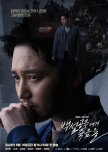
Branca de Neve vive e viverá!
Foi um drama tecnicamente perfeito e bem estruturado, onde o personagem Go Jeong U enfrenta traições das pessoas que ele mais amava. Tramar contra Jeong e fazê-lo pagar por assassinatos que ele não cometeu revela a inveja, obsessão e egoísmo que norteiam os seres humanos. Assim como no título, "Black Out" simboliza o apagamento da verdade e o caos que envolve a vida de Jeong. Ele é nossa "Branca de Neve", um personagem com uma aura de inocência e bondade, mas que precisa “morrer” – ou seja, ser destruído pelas forças escuras ao seu redor.A escolha do nome sugere que os ideais de pureza e bondade associados a ele estão ameaçados e devem ser sacrificados. Essa interpretação se alinha perfeitamente com a narrativa, pois ao longo do drama, o protagonista lida com a ameaça contínua de ser derrotado pelas pessoas próximas, mas também pela própria sociedade que o condena. As atuações foram impecáveis, especialmente a de Lee Ga Sub, que interpretou gêmeos com sutileza e autenticidade, sem cair no estereótipo comum de personagens neurodivergentes em dramas coreanos.
No final, onde Jeong lança flores no lago para aqueles que perderam a vida nessa tragédia, vemos uma simbologia poderosa de redenção e aceitação. Assim como “Branca de Neve” em seu conto, Go Jeong U parece buscar um encerramento, mas de maneira muito mais trágica e sombria. Ele é uma figura que, mesmo em meio ao caos e destruição, escolhe simbolizar um tributo silencioso e precioso.
Was this review helpful to you?

I PRAY, I ASK FOR THE HEAVEN
I have to admit, I was a bit taken aback by the low rating for the final episode of “완벽한 가족”. I’m not sure what people were expecting from the conclusion, especially since the pacing and plot development seemed like they could’ve fit better in a film rather than a full-length drama series.The entire storyline was built around the drama’s theme song, “TO HEAVEN”, beautifully sung by Jukjae. So, I’m going to break down the song verse by verse and connect it with the storyline. This drama deals with themes of isolation, family secrets, and the constant pursuit of a perfect image, while the characters navigate deep emotions and personal struggles.
First Verse:
Lyrics:
“Quietly, loneliness creeps into me
When will this long day ever end?
The sky I saw while walking with heavy steps
Is dark, as if it’s looking into my heart and painting it.”
Analysis:
The first verse speaks to a deep, creeping loneliness. The feeling that the day drags on endlessly suggests ongoing anguish, a sense that the problems and burdens are never-ending. The “dark sky” reflects the emotional state of the person, symbolizing hopelessness and the weight of their internal struggles.
Connection to the Drama:
This verse mirrors the experiences of the main characters, who seem to have the perfect lives on the surface, yet beneath it all, they carry the heavy burden of maintaining appearances. In “완벽한 가족”, there’s a stark contrast between what the characters show to the outside world and how they truly feel. The drama explores how, despite being surrounded by people, especially the protagonist’s parents, they feel a deep loneliness, which is reflected in their expressions and the “heavy steps” of their daily routine. The “dark sky” represents the secrets that haunt the family.
Second Verse:
Lyrics:
“I close my eyes in silence and slowly count to ten
In the moment I open them, I wish it were all a dream
I pray, I pray, to heaven.”
Analysis:
Here, the lyrical voice seems to seek a temporary escape from reality by closing their eyes and hoping that when they open them, it was all just a nightmare. Praying to heaven represents a search for a way out, a desperate hope that the difficulties will magically disappear.
Connection to the Drama:
In the story, the characters often seem to be living in a dream or an illusion of perfection. The mother, who upholds this facade of family happiness, could be seen as someone who’s constantly praying for that illusion to stay intact, dreading the day when the family’s secrets come to light. This wish for everything to “be a dream” reflects the moments when the drama’s characters yearn to escape the tension and stress that weigh heavily on their seemingly perfect lives.
Third Verse:
Lyrics:
“I let out a sigh bigger than my breath
I try to walk back, but I remain in the same place
My wish, finally written in tears
Yes, I want to go back to the beginning.”
Analysis:
This verse expresses frustration. The lyrical voice is stuck in a repetitive cycle, unable to move forward. The melancholy of wanting to “go back to the beginning” suggests a longing to undo choices or fix the mistakes that led to the current situation.
Connection to the Drama:
In the drama, many of the characters, especially the protagonist’s parents, grapple with regret and remorse. They often question whether the choices they made — regarding their careers, family, or hidden secrets — were the right ones. Like the lyrics, they long to “go back to the beginning” to try and rewrite their lives, free from the mistakes and secrets that now haunt them. This desire for a second chance is a recurring theme in the story as they try to face the consequences of their past decisions.
Fourth Verse:
Lyrics:
“Once again, I’m alone, only my shadow remains
In the moment everything collapses, I wish it were someone’s embrace
I pray, I pray, to heaven.”
Analysis:
In this verse, the lyrical voice feels abandoned, left with only their shadow for company. When everything seems to be falling apart, they yearn for the embrace of another, a sign of vulnerability and a desire for emotional connection. Once again, there’s an appeal to heaven, a plea for divine intervention.
Connection to the Drama:
This verse fits perfectly with the storyline of “완벽한 가족”. The breakdown of family relationships and the loneliness of the characters are central themes. As the facade of perfection begins to crumble, each family member desperately seeks comfort in others. However, much like the lyrics, they often find only their own shadows — a metaphor for the emptiness that surrounds them. The desire for an embrace — a genuine and heartfelt connection — is something the characters crave but rarely find, as they’re all trapped in their own illusions and fears. The prayer to heaven symbolizes their last hope that something, or someone, might save this “perfect family” before it falls apart entirely.
This analysis shows how the song “TO HEAVEN” and the storyline of “완벽한 가족” are deeply intertwined, sharing themes of loneliness, frustration, and the search for redemption or comfort. Just as in the song, the characters in the drama are constantly praying — both literally and figuratively — for their lives to be healed from the secrets and pain that weigh them down. They wish they could go back to the beginning, to find solace, and to overcome the emptiness that surrounds them.
In the end, I hope you find my analysis insightful, and I truly wish that everyone can find their own version of the “perfect family” in the best way life can offer.
Was this review helpful to you?
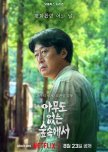
VISUAL AMBITION AND A DISJOINTED SCRIPT: WHEN BEAUTY CAN'T SAVE THE CHAOS.
The ambiguity of this drama reflects a production that feels as though the writers weren't in sync. While the past is carefully crafted with well-written dialogues and stellar performances, the present stumbles in quality, offering a script that borders on mediocre and a storyline so absurd that even the most imaginative mind would struggle to accept it.
Nonetheless, the high level of investment is evident, with the beautiful cinematography standing out as one of the drama’s most redeeming qualities, enhancing its aesthetic appeal.
As for the performances, they truly shine. Go MinSi delivers an outstanding, award-worthy performance, and Park Chan Yeol complements the cast with his precise and solid acting. Together, they manage to elevate the overall production, even amid the script's inconsistencies.
Was this review helpful to you?
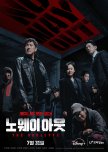
IS IT OVER? OK...
At various moments watching this drama, I thought I was watching "The Killing Vote" again. They are dramas with very distinct synopses, but with the same purpose: to punish those who are spared by the law. The execution was very good and the choice of cast only shows how much Disney invested. Jin Woong, playing the protagonist police officer, had a reasonable performance. It seemed like he was on autopilot, but his lack of mobility to walk and run was embarrassing, it seemed like it was torture for him to do either of these two things. Now, we have to praise and applaud the high-level performance of veteran Yoo Jae Myung, playing the social scum of GukHo.The drama left openings for a second season. I am neither for nor against, I am indifferent. If there is one, I will watch; otherwise, life goes on.
Was this review helpful to you?

This review may contain spoilers
APENAS AGRADÁVEL
É uma história um tanto clichê, mas bem conduzida e dinâmica. As atuações foram muito boas, e gostei da sublimidade e sutileza ao abordar a provável homossexualidade de Ri Hyeong Sang. A forma como ele se sentia sufocado ao seguir o rígido padrão do regime norte-coreano foi bem transmitida, especialmente ao mostrar sua disposição em carregar esse fardo a qualquer custo. Na visão dele, Gyu Nam também deveria suportar esse peso.Outro destaque foi a atuação de Hong Xa Bin, que interpretou o imaturo e inconsequente soldado Dong Hyeok. Para mim, o drama transmitiu claramente a mensagem de que a Coreia do Sul está aberta aos desertores do norte, com um viés político e humanitário intrínseco.
Já notei que em dramas sul-coreanos há uma tendência a estereotipar outras etnias e culturas, exagerando em alguns aspectos e, por vezes, cometendo equívocos. No filme, todos os norte-coreanos são retratados como extremamente pardos, com suor exagerado nos rostos.
No geral, é um bom filme, porém, não memorável.
Was this review helpful to you?

OK, SHALL WE MOVE ON?
You know that drama that's just okay and only entertains because it has a good premise and good characters, that's the example of this drama, nothing much beyond that, if there's a third season I'll watch it, if not, it's okay with me.
The highlight of this drama were the special guest appearances throughout the drama and I think that was the high point that brought dynamism by creating villains every two episodes to reach the conclusion of the story.
Another thing worth highlighting is the well-executed text.
Was this review helpful to you?







